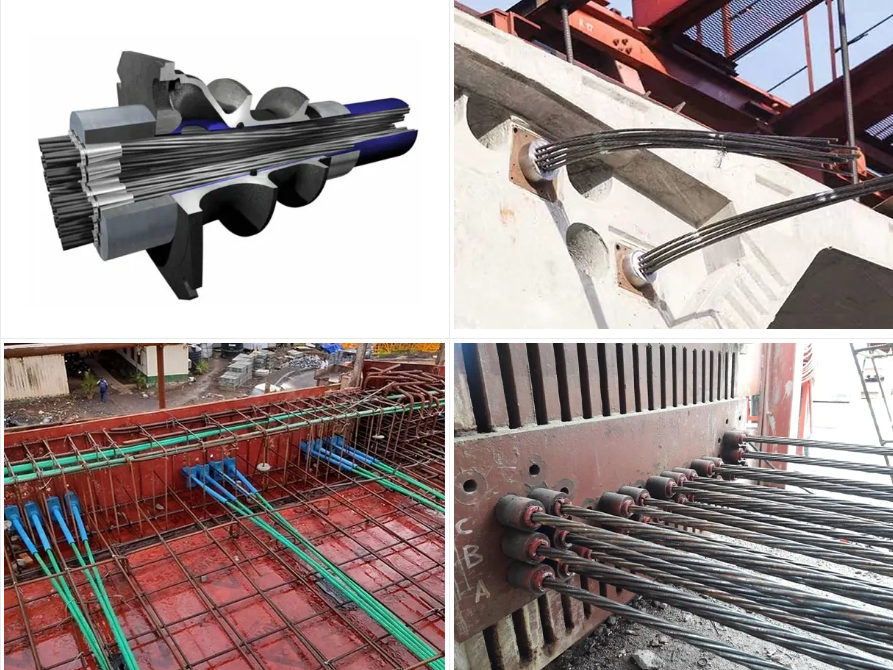What is Post tensioning?
The engineering-best friend of developers, architects, engineers and contractors – post-tensioning enables the construction and refurbishment of concrete structures; improving structural performance while also reducing construction time, costs, materials and environmental impact.
But what is post-tensioning? Post-tensioning is a method of reinforcing concrete. High-strength steel tendons are positioned in ducts or sleeves before the concrete is placed. Once the concrete has gained strength, tension is then applied, pulling the tendons and anchoring them against the outer edges of the concrete, before service loads are applied.
 The PT technique is a form of pre-stressing, which differs slightly from post-tensioning as steel tendons are tensioned before the concrete is placed. The tendons are stretched between strong bulkheads which withstand external forces and the concrete is poured around them.
The PT technique is a form of pre-stressing, which differs slightly from post-tensioning as steel tendons are tensioned before the concrete is placed. The tendons are stretched between strong bulkheads which withstand external forces and the concrete is poured around them.
Post-tensioning uses
Post-tensioning system is used extensively in bridges, floor slabs, silos and other forms of concrete construction.
RuiYi has installed PT systems to a variety of structures, including:
Bridges
Buildings
Tanks
Stadiums
Nuclear containment vessels
Gravity bases for oil rigs and wind turbines
Art structures
The use of post-tensioning in the repair of structures is an area which has seen significant increase, particularly in structures built in the 1960s.
Post-tensioned structures can have issues with corroded tendons due to a lack of grout in the ducts. During an investigation, cores are drilled into the structure to find the duct and then it is opened to reveal the condition of the tendon and the grout. RuiYi provides a full structural assessment, calculation and consultation in order to determine the most effective and economical repair solution.





